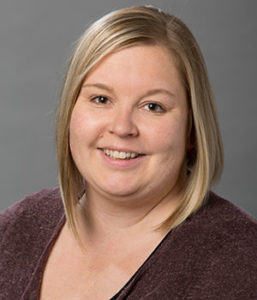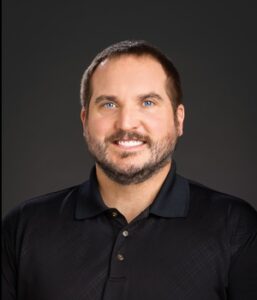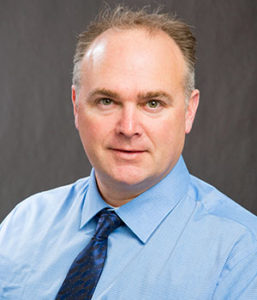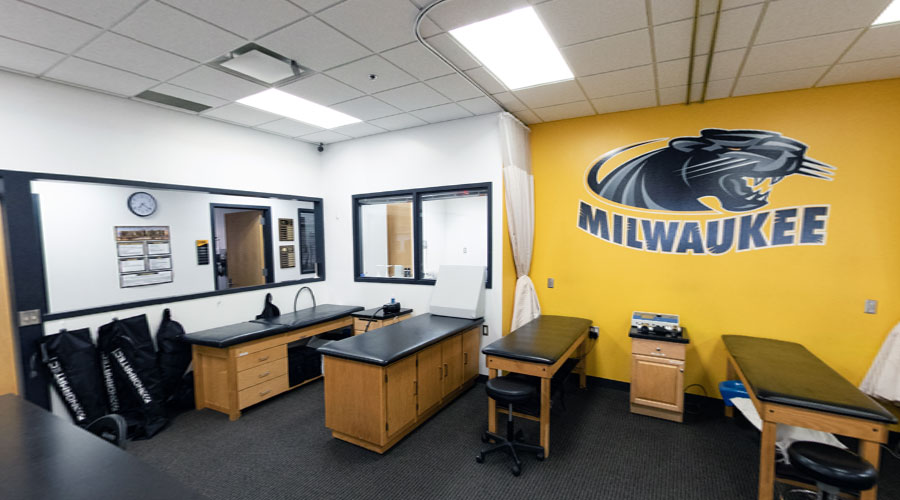Athletic Training MS
The athletic trainer is a health care professional who renders service or treatment, under the direction of or in collaboration with a physician, in accordance with their education and training, and the state’s statutes, rules and regulations.
As a part of the health care team, services provided by athletic trainers include primary care, injury and illness prevention, wellness promotion and education, emergent care, examination and clinical diagnosis, therapeutic intervention, and rehabilitation of injuries and medical conditions.
To become an athletic trainer, you must earn an athletic training master’s degree or other graduate degree in athletic training from a program accredited by the Commission on Accreditation of Athletic Training Education, and pass the national Board of Certification exam.
Program Type
Master’s
Program Format
On Campus
Athletic Trainers…
“collaborate with physicians in the prevention, emergency care, clinical diagnosis, therapeutic intervention and rehabilitation of injuries and illnesses.”
– National Athletic Trainers’ Association
Your work as an athletic trainer will take you to a wide variety of settings, including secondary schools, colleges and universities, clinics and hospitals, professional sports, performing arts, public safety, military, and occupational health.
Your clients will come from all walks of life and from all age groups.
If athletic training sounds like a good fit for you, please read the National Athletic Trainers’ Association infographic “So you want to become an athletic trainer?”
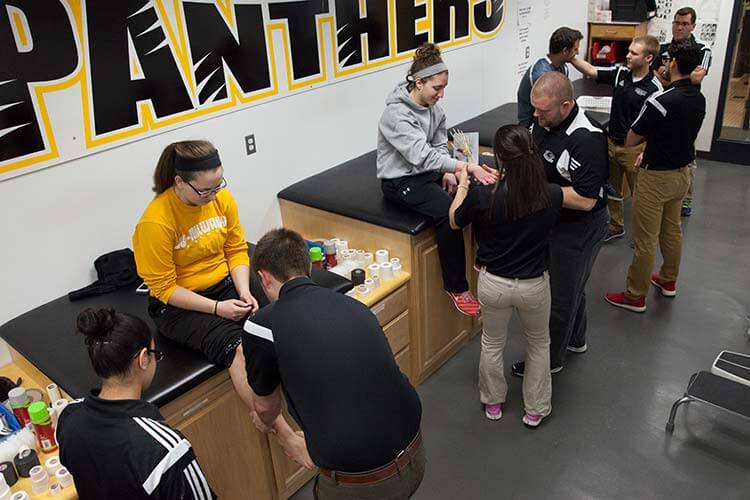
The UWM athletic training master’s program is a graduate-level professional program that prepares you to become a credentialed athletic trainer. This is a program for students who already have a bachelor’s degree.
Here are some options for students just starting their undergraduate degree:
- The UWM BS-Kinesiology/MS-Athletic Training is an accelerated program where you earn your bachelor’s and master’s degree in only five years.
- Bachelor of Science in Kinesiology
- Bachelor of Science in Occupational Science and Technology
MS Athletic Training Student Handbook (PDF)

The Master of Science in Athletic Training program is accredited by the Commission on Accreditation of Athletic Training Education (CAATE). UWM received initial accreditation in 2003 for the Bachelor of Science in Athletic Training program, and was approved for degree change in December 2016. In Fall of 2017 the program completed a comprehensive accreditation review, and was reaccredited for the maximum 10 year period. The next comprehensive review will occur in the 2027-2028 academic year.
CAATE Program Information and Outcomes Page
Employment Outlook
Earnings
Athletic trainers working in full-time positions typically receive a salary and benefits. The salary depends on the education and experience of the athletic trainer and also on the setting in which the individual is working. According to the U.S. Bureau of Labor Statistics, the median annual income of athletic trainers in Wisconsin is $61,120, compared to the national average income of $57,930. The National Athletic Trainers’ Association (NATA) provides estimates of salary by experience level, education and job setting based on a membership survey conducted every two years. The 2018 NATA Salary Survey (PDF) indicated a national average salary of $68,907.
Expected Growth
According to the U.S. Bureau of Labor Statistics, employment of athletic trainers is projected to grow 14 percent from 2022 to 2032, much faster than the average for all occupations.
Projections from the Wisconsin Department of Workforce Development indicate that from 2020-2028, there will be a 10% increase in the number of athletic training jobs in the state of Wisconsin, and a 9% increase in the greater Milwaukee area (Milwaukee, Ozaukee, Waukesha and Washington counties). This exceeds the overall increase in health care practitioner positions (5%), indicating that athletic training continues as a strong area of growth in the health care professions.
Competition is expected for positions with collegiate or professional sports teams. These settings are expanding their services to physically active youth and adult populations. The demands for services will continue to expand beyond traditional “sport-related” roles to include exercise and reconditioning, on-site occupational health, on-site injury prevention, and fitness and wellness. As our society continues to age and increase its focus on health and physical activity, the role of the athletic trainer is likely to increase proportionally. The athletic trainer is able to provide a diverse perspective in the prevention and treatment/rehabilitation of physical activities across our diverse and aging population.
Competition for well-trained professionals with recognized degrees in the field, relevant experience, and certifications beyond minimal requirements are likely to drive salaries and positions in this industry. According to the National Athletic Trainers’ Association, almost 70 percent of athletic trainers have a master’s degree or higher. Athletic trainers may need a master’s or higher degree to be eligible for some positions, especially those in colleges and universities, and to increase their advancement opportunities. Because some positions in high schools involve teaching along with athletic trainer responsibilities, a teaching certificate or license could be required.
Sources: 2018 NATA Salary Survey (PDF); Bureau of Labor Statistics, U.S. Department of Labor, Occupational Outlook Handbook, Athletic Trainers.
Successful Alumni
The School of Rehabilitation Sciences & Technology has many successful alumni. These alumni have taken their Athletic Training, Communication Sciences & Disorders, Occupational Therapy, Sciences & Technology and Physical Therapy educations and have excelled in their careers.
Visit our Alumni page and be inspired by where a health sciences degree can take you.
Related Programs
Admission
To apply for the MSAT program, all application materials must be submitted through the Athletic Training Centralized Application Service (ATCAS). The program seeks to admit highly qualified students until the class has been filled (approximately 16 students per year).
Students earning a Bachelor of Science in Kinesiology degree from UWM should have met all of the prerequisite courses needed for a strong foundation on which to build their athletic training education. Up to 25% (four out of 12) of slots per year are prioritized for highly qualified students holding a Bachelor of Science in Kinesiology degree from UWM.
If you have already completed a bachelor’s degree and are interested in taking courses at UWM to satisfy MSAT program prerequisites, you should apply for admission to UWM. On the application, you should identify your reason for applying as “Undergraduate courses as a visitor/guest student” and your “applying as” status as “Undergraduate non-degree student with a bachelor’s degree.” You should apply as a second degree student only if you plan to complete a second bachelor’s degree. Questions regarding financial aid for non-degree students should be directed to Gayla Jenkins (jenkinsg@uwm.edu) in the UWM Department of Financial Aid.
Early Decision Cycle
Application deadline: Nov. 1
Interview window: Nov. 15 – Dec. 1
Notification window: Dec. 1-15
Rolling Admission
After Nov.1, applications will be evaluated on a rolling basis until the class is filled, but no later than March 1.
Admission Requirements
In addition to the Graduate School minimum qualifications, applications must meet the following prerequisites to be eligible for admission to the athletic training master’s program:
- Completion of a bachelor’s degree from an accredited institution with an overall cumulative grade point average (GPA) of a 3.0 (on a 4.0 scale) at the time of application submission and graduation. GPA’s between 2.75 and 3.0 will be considered if other aspects of the application indicate strong readiness for graduate study. Official transcripts must be submitted. Undergraduate degree must be completed by the time the applicant plans to begin in the MSAT program.
- Completion of 10 prerequisite courses. A prerequisite GPA of 3.0 (on a 4.0 scale) or grades of B or better is recommended.
- Two letters of recommendation. One of the letters must come from an academic reference (preferably a faculty member as opposed to a graduate student instructor) and one from an athletic trainer with whom the applicant completed observation hours if they were completed. If you didn’t complete an observation, then the second letter can come from another supervisor or professor. The applicant generates the recommendation request from the ATCAS website once the application has been created.
- Optional: Completion of observation of athletic training practice with a certified athletic trainer within 12 months of application submission. 10-20 hours of observation is preferred. The observation hours documentation log can be found on the MSAT website.
- Optional: GRE scores. Those whose undergraduate GPA is below 3.0 must provide evidence of ability to succeed in graduate study, and taking the GRE is one of several options for providing this evidence. https:/uwm.edu/graduateschool/admission/
If GRE scores are being submitted, the General Test of the GRE should have been taken within the last five years. Applicants are encouraged to complete the GRE approximately six months before the date of application submission, if not sooner. This timeframe allows an applicant to repeat the test to increase scores if desired. GRE scores can take up to eight weeks to be delivered to UWM. Applicants are encouraged to prepare in advance for the test. Additional information (including preparation materials) is available on the GRE’s website (link above). UWM’s institutional GRE Code is 1473.
Prerequisite Courses
You must complete the following 10 prerequisite courses. A prerequisite GPA of 3.0 is recommended for the athletic training master’s program.
| Prerequisite Course | UWM Course Number (or equivalent) |
|---|---|
| Human Anatomy | Biological Sciences 202 |
| Human Physiology | Biological Sciences 203 |
| Chemistry I | Chemistry 100 or 102 |
| Biology | Biology 150 |
| Physics I | Physics 110 or 120 |
| Biomechanics | Kinesiology 320 |
| Exercise Physiology | Kinesiology 330 |
| Introductory Nutrition | Biomedical Sciences 232 or Nutritional Sciences 235 |
| Introductory Psychology | Psychology 101 |
| Statistics | Kinesiology 270 |
Applicant transcripts will be evaluated during the review stage of the admissions process according to program policy. It is strongly preferred that students complete a specific course for each prerequisite requirement area. However, course equivalencies will be considered if there are multiple advanced level courses in a related area. The applicant may be asked to provide a course syllabus to guide the decision making for any course equivalency. Prospective applicants may request a prerequisite course review prior to submitting the application. Appropriate college credits already completed through the Advanced Placement (AP) Program, the College-Level Examination Program (CLEP), the International Baccalaureate (IB), and enrollment in college courses while in high school, may be applied towards the prerequisite course requirements.
If you are currently enrolled in a prerequisite course, you may be granted conditional admission, pending successful completion of the course and meeting all prerequisite criteria. Preference will be given to applicants who have completed all prerequisite courses at the time of application submission.
Transfer Students
Due to the sequential and cumulative nature of the curriculum, transfer students must complete all the athletic training core courses at UWM. Acceptance of transfer credits is determined by the program director in consultation with the UWM Graduate School.
Matriculation Requirements
Once admitted to the athletic training master’s program, students must complete the following to enroll in the university and program.
- Criminal Background Check
The university is required to perform a criminal background check on students prior to beginning the program. Consistent with Wisconsin’s Caregiver Background Law, individuals with certain convictions may be disqualified from working in hospitals and other health care or care facilities. Such individuals may also be denied national certification and licensure. More information about the Caregiver Background Law is available at: http://www.dhs.wisconsin.gov/caregiver/index.htm.
If you have a criminal conviction in your background, it may affect your ability to work in certain facilities or obtain certification and licensure. The inability to be placed in facilities may affect your completion of clinical education requirements and thus degree completion. In addition, the existence of disqualifying convictions under the Caregiver Background Law may also affect your eligibility for certification and licensure, and/or your ability to gain employment in this field. It is the student’s responsibility to notify the program director if an event occurs while in the program that may change the results of the criminal background check. You should contact the program director as soon as possible to discuss whether you should apply to the program or consider alternative programs.
- Immunization Verification and Testing
Students must provide a document with proof of immunization through an official state immunization record document. Students will upload this document into their eValue Personal Records section. Required immunizations include the following:
- Tetanus, diphtheria, pertussis (Tdap)
- Tetanus Booster (Td) (within last 10 yrs)
- Measles/Mumps/Rubella (MMR)
- Hepatitis B (HepB) (Or signed refusal)
- Varicella (Positive titer OR varicella vaccine (VAR))
- Meningococcal (Recommended for students living in the dormitories, but not required)
There are some additional immunizations and tests that will be required. These can be completed on campus at the UWM Student Health and Wellness Center.
- QuantiFERON-TB Gold+ for TB screening (required before July 1)
- 10 panel urine drug test (required before July 1)
- Influenza vaccine (required before October 15th)
- COVID-19 (may be required for certain clinical sites)
Our program respects that a student may elect to not receive immunizations for various reasons. A student may be asked to provide additional documentation from their medical provider if they are unable to obtain the required immunization for the clinical experience. Students must comply with the clinical affiliate’s immunizations/medical documentation policy. If a student is not in compliance with the policy, the clinical affiliate may decline the student placement. Students should be aware that this could impact their clinical placement options and delay the progression through the program.
- Technical Standards and Physical Examination
The Athletic Training Program is a rigorous and intense program that places specific requirements and demands on the students enrolled in the program. An objective of this program is to prepare graduates to enter a variety of employment settings and to render care to a wide spectrum of individuals engaged in physical activity. The Technical Standards establish the essential qualities considered necessary for students admitted to this program to be able to function independently, without an intermediary, to achieve proficiency in the knowledge and skills of an entry-level athletic trainer. A student who has a disability may request reasonable accommodation. Students should read the Technical Standards document carefully, and then attest that they meet the Technical Standards. Students with a disability may request reasonable accommodation and must work with the University Student Accessibility Center to discuss possible accommodation. If a student is unable to fulfill these Technical Standards, with reasonable accommodation, the student will not be able to matriculate into the program and/or may be dismissed from the program.
The athletic training master’s program provides a structured, tracked curriculum that contains coursework as well as community engaged opportunities for clinical education, research and professional development. Philosophies of evidence-based practice, integrated person-centered care, cultural competence and clinical problem solving are incorporated into all courses within the curriculum. There are several courses that are taught interprofessionally, where students from multiple health care professions learn about, from and with each other.
The curriculum consists of 69 credits to degree and meets all of the competencies and requirements set forth by the Commission on Accreditation of Athletic Training Education. At the completion of the program, you will be eligible to sit for the national certification exam, administered by the Board of Certification.
MS-Athletic Training course requirements (69 credits)
Athletic Training Master’s Degree (69 credits)
Summer 1
| Course Number | Course Title | Credits |
|---|---|---|
| ATRAIN 725 | Gross Anatomical Kinesiology | 4 |
| ATRAIN 710 | Prevention & Care of Emergent Medical Conditions in Athletic Training | 4 |
| ATRAIN 785 | Clinical Education in Athletic Training I | 1 |
| ATRAIN 701 | Athletic Training Foundational Skills | 1 |
| ATRAIN 747 | Clinical Exam & Diagnosis of the Lower Extremity in AT | |
| Semester credits | 13 |
Fall 1
| Course Number | Course Title | Credits |
|---|---|---|
| PRPP 553G | Psych Considerations for Optimizing Health & Performance | 3 |
| ATRAIN 723 | Physiological Regulation of Exertion and Disease | 3 |
| ATRAIN 757 | Foundations of Therapeutic Interventions in AT | 3 |
| ATRAIN 786 | Clinical Education in Athletic Training II | 2 |
| ATRAIN 726 | Pathoetiology of Musculoskeletal Injury | 1 |
| ATRAIN 749 | Clinical Exam & Diagnosis of the Upper Extremity in AT | 3 |
| Semester credits | 15 |
Spring 1
| Course Number | Course Title | Credits |
|---|---|---|
| ATRAIN 748 | Clinical Exam and Diagnosis of the Head and Spine in Athletic Training | 3 |
| ATRAIN 758 | Physical Agents | 2 |
| ATRAIN 753 | Medical Physiology II | 3 |
| ATRAIN 754 | Clinical Exam & Diagnosis of Medical Conditions in AT | 1 |
| PRPP 551G | Psychology of Injury: Prevention, Rehabilitation and Return to Participation | 3 |
| ATRAIN 787 | Clinical Education in Athletic Training III | 2 |
| Semester credits | 14 |
Summer 2
| Course Number | Course Title | Credits |
|---|---|---|
| ATRAIN 759 | Advanced Therapeutic Intervention | 3 |
| ATRAIN 788 | Clinical Education in Athletic Training IV | 2 |
| ATRAIN 744 | Clinical Education in Athletic Training IV | 3 |
| ATRAIN 705 | AT Practice Based Research I | 2 |
| Semester credits | 10 |
Fall 2
| Course Number | Course Title | Credits |
|---|---|---|
| ATRAIN 883 | Capstone Clinical Education in Athletic Training | 6 |
| ATRAIN 706 | AT Practice Based Research II | 1 |
| ATRAIN 745 | Administrative Management In Athletic Training | 2 |
| Semester credits | 9 |
Spring 2
| Course Number | Course Title | Credits |
|---|---|---|
| ATRAIN 883 | Capstone Clinical Education in Athletic Training | 6 |
| ATRAIN 800 | Athletic Training BOC Exam Preparation | 2 |
| Semester credits | 8 | |
| TOTAL CREDITS TO DEGREE | 69 |
Prospective Students
Undergraduate students who have declared an intent to pursue Pre-Athletic Training or the accelerated BS Kinesiology/MS Athletic Training are advised by Torry Rufer. Contact Torry at 414-229-2758 or tjrufer@uwm.edu.
Admitted Students
You will receive advising from designated program faculty. Additional information will be made available to you after admission.
Graduation
The established graduation criteria for the athletic training master’s program include:
- Payment of graduation fee in PAWS
- Completion of 69 degree credits
- Minimum cumulative GPA of 3.0
Use UWM’s Graduation website to review campuswide graduation requirements, application deadlines, applying for graduation and ordering your cap and gown.
- Associate Professor, Athletic Training & Sport Psychology
- Program Coordinator, MS, Rehabilitation Science & Technology
- Program Director, PhD, Health Sciences
- arvinenb@uwm.edu
- 414-251-7428
- Pavilion 370
- Clinical Assistant Professor, Athletic Training & Sports Psychology
- doeringa@uwm.edu
- 414-977-7768
- Pavilion 372
- Program Director, Athletic Training & Sports Psychology
- Executive Committee Chair
- Professor, Athletic Training & Sports Psychology
- jearl@uwm.edu
- 414-229-3227
- Pavilion 367
- Professor, Athletic Training, Physical Therapy
- ebersole@uwm.edu
- 414-229-6717
- Pavilion 364
- Professor, Athletic Training & Sport Psychology
- Laboratory Director, Laboratory for Sport Psychology & Performance Excellence
- bbmeyer@uwm.edu
- 414-251-6393
- Pavilion 369
- Clinical Assistant Professor, Athletic Training & Sports Psychology
- Clinical Education Coordinator, Athletic Training
- manofsky@uwm.edu
- 414-251-7246
- Pavilion 368

